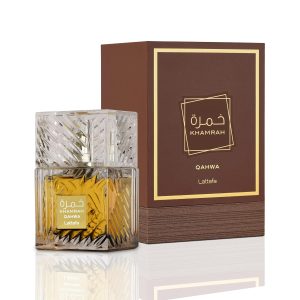 In Defense of Fragrance
In Defense of Fragrance
I recently read an article about the recent boom in the fragrance market. In the article, the author posited that this rise was at least partially due to Covid-19 and how people in isolation had forgotten the natural smell of other people, so a market rose up to meet the demand of people not wanting to contribute to those odors. She also touched on the classist and potentially racist associations with scent. While it was all very interesting, I think I have a different take on it.
Granted, my own family has a long association with pleasant fragrances. My great grandparents’ homes were the last I can remember that smelled neutral, except for the bottles of perfume in the bathrooms. By my grandparents’ generation, potpourri and air fresheners had taken over their homes. But that is not because some of those things didn’t exist before. Potpourri & incense have been used since antiquity to scent homes. But my great grandparents were all farmers, practical and poor people for whom these things would have been a luxury. When I recently inherited a few of my great grandma Daugherty’s things, I was even surprised to find that she had a few Alfred Hitchcock novels and an apricot scented candle in an apricot shaped pot. This kind of frivolity goes against my perceptions. The candle had never been burned, and I can imagine my grandma just lifting the lid and getting a little treat of apricot fragrance to lift her spirits. And although she was poor, she wore perfume.
In my grandparents’ homes, everything smelled “nice.” There was lemon scented all-purpose cleaner, pine scented floor cleaner, scented fabric softener, and even sometimes a pot of spices on the stove, the scent wafting out into the house. Neither home had scented candles regularly, but there was scent. My grandpa’s bathroom smelled strongly of Old Spice and Irish Spring, my grandma’s of Tabu and lotion and the gentle scent of soap from the bowl of rose shaped pieces arranged in a bowl on the counter.
The home I grew up in had its own strong scents. My mom loved scented candles, and she’d light them when she came home from work, so when we arrived from school there would be one in the main bathroom, one in the kitchen, and one in her bedroom. There were different scents in the rooms, all seasonally appropriate, and as you walked from room to room, the gradients changed and it would all make the house feel all the more cozy. She too would sometimes have spices going instead of a kitchen candle, and while she had potpourri throughout the house, it was rarely strong enough to contribute. We did not have laundry scents; my dad’s sensitive skin required unscented products. But my parents both wore perfumes: my mom had a selection of various options and my dad primarily wore Brüt, then Aspen, the Le Mâle. Our shoes weren’t allowed in the house, and my mom would spray them with Brüt on the porch.
In the 1990s, Bath & Body Works opened and my mom’s fragrances became those offered in their lotions and body sprays, which largely replaced the need for as much perfume. She would smell like Pearberry, Coconut Lime Verbena, or “Gingham.” I have two brothers, and as each of us started puberty, the Brüt we shared was replaced with scents that were more individualized. My grandma chose mine, giving me a bottle of Tommy by Tommy Hilfiger, which is how I smelled though high school and college. My older brother received Abercrombie & Fitch’s Woods, but I don’t remember what he used before that. I also don’t remember my younger brother’s fragrance preference, but knowing him he likely used what my dad and my grandpa used.
Our cars were not exempt from scent either, with various forms of air fresheners being utilized, from little trees to pots under the seats to little gel packs that slipped onto the vents. At church and school, the restrooms dispensed bits of air freshener on a timer, in every department store a melange of perfumes had created an ever-changing distinct character.
In the article I read suggested a recent and new obsession with ridding ourselves of the natural smells of being human, linking that concept to racism. I worry about that suggestion, as it implies that unpleasant body odor is linked to non-White people around the world. It ignores the millennia of history of added scent in cultures around the world.
The modern concepts of perfume are closely tied to the Middle East. While perfumes and incense were common in Ancient Greek & Roman cultures, it was the introduction of Arabic notes in the Islamic period in Spain that really brought these perfumes to Europe. There is even question about whether Europeans had lost the practice in the interim.
In South Asian cultures, scent has always been important, dating back to the Indus River Valley Civilization. Ayurvedic practices have linked India with many scents, like patchouli, jasmine, and sandalwood. For many, incense is synonymous with the region.
A friend of my mom’s does have some of her racism tied to scent, but while she associates things like patchouli and sandalwood with people she sees as “inferior,” she also doesn’t understand that many of the fragrance notes that are common in our lives are from the people she is so hateful toward. There’s a conversation there about fragrance, but it isn’t about a cultures lack of personal fragrance.
Indigenous Americans used perfumes and incense for a variety of personal and ceremonial purposes. Some of the plants that have been used for thousands of years in the Americas have found their way into all areas of fragrance. Tobacco in particular is a staple of the perfume industry. Vanilla and cacao were brought to Europe by Spanish Conquistadors, while the Spanish introduced the distillation of oils and their own fragrance practices to indigenous Mexicans and Central Americans.
Across Africa, various ingredients have historically been used in a variety of ways to incorporate scent. Oud, tonka bean, ylang-ylang, frangipani, vanilla, citrus, myrrh, frankincense, and spices have millennia-old roots. These fragrances were used for weddings, ceremonies, to scent clothes or hair, and as perfume for well-being.
So, why the rise in the fragrance industry? I’m not sure it can be blamed on Covid-19. At least where I live, there was no extended period of isolation for folks. The risks were largely ignored. I think the same thing has happened to fragrance that happens to many things. A traditional thing is turned into a luxury item, popularized as an expensive thing, and then when it becomes cheaper and cheaper to produce, it becomes affordable and obtainable more widely, while the association with luxury remains as a cultural artifact. That fades with time. As fashions reaches the working class, its appeal starts to fade for those who benefit from it remaining a luxury. Carpet was a luxury when first introduced, but by the time it became affordable it was seen as cheap. Wine has gone through it. Recently, Business Insider decried that caviar could lose its luxury status, as if that was what mattered about the product. The implication in their article was that it only has value if it isn’t widely available to ordinary people. That’s what perfume has gone through. What was once cultural and easily used by everyone was turned into a symbol, and that symbol is crumbling as fragrances become increasingly inexpensive. Now, anyone can get a decent bottle of perfume for under $40. The ideas we all still have of this being a product of the elite is something that will change over time.
What to do about those who have sensitivities to fragrances? That’s a discussion to have for sure! I personally don’t care for the use of products that infuse so much scent into our clothes. Perfume on the skin dissipates over time more quickly than those products. Certainly a home where candles are regularly used has a more permanent aroma than one that does not, but both can feel overpowering if the linen closet is filled with items that have been scented with laundry detergent, fabric softener, fragrance beads, closet sachets. I think scenting responsibly is something we can all learn. I know that I overspray fragrances on my own skin when I am going to be home for the day, or at the park. But when I intend to be around others, I spray pretty sparingly. And other people are not doing that. Maybe it gets into American selfishness, I’m not sure. I also think people who have sensitivities, allergies, or aversions shouldn’t feel like there is some sort of inherent virtue to smelling a specific way. A person who wears nothing smells different from someone wearing floral perfume. It’s not better or worse. It’s different. I think it can be difficult to work on those issues when other people genuinely enjoy a perfume and compliment it. That creates the perception of a good vs bad way to smell, but is the answer to tell people they aren’t allowed to smell how they choose? Or worse, should we stop complimenting one another? It’s important to recognize people’s health issues, but it can be a difficult discussion. I don’t think demonizing the use of perfume does what it was meant to do.
I always get nervous about Eurocentric discussions of other cultures. I find the discussion of practices in non-European cultures as being strictly or largely ceremonial or religious to be incredibly problematic. I don’t think we would use that sort of language when talking about an 18th century French woman and her use of perfumes. To be fair, the use of daily perfume could be considered ceremonial, but when historians talk about the cultural practices of groups they do not belong to, it often feels like non-European cultures lack a sense of self. They don’t exist as persons, but as extensions of their archaic religious beliefs, or as accessories to their nobility. Some European history does some of that as well, but the people aren’t described as a collective that is unable to do or think in individual ways. In these narratives, Europeans are real people; non-Europeans are not.
To be generous, the author suggesting the link between the fragrance industry and racism could be viewing it through the lens of the entire beauty industry. With fragrance a part of beauty standards, it could go hand in hand with the discussions on that topic. But I don’t think it works as well in isolation.
This all gets under my skin, and I suppose even writing these thoughts down could be seen as doing some of the same things I criticize.
As White people, I think it is so hard to fully understand the depths of our internalized racism. I know I have my own racist ideas. I am sometimes shocked when I discover a bias I have that I just didn’t work on or realize consciously until a news story or article brings it up and I am jolted into the realization of my own bigotry. There isn’t always a malicious teaching of these notions, but the permeate everything anyway. If someone attended school in the United States and didn’t come away with some amount of racism, they are lying. It’s baked into our myths about ourselves.
I think the suggestion that the use of fragrance is some sort of Colonizer practice meant to rid the world of body odor’s from those we sough to oppress is to center Europeans as the ones from whom pleasant body fragrance was derived. It ignores the cultural roots of fragrance around the world, both as ceremonial and as personal. I think there are some ways we can discuss how body odor is tied to culture, but I don’t think the blame lies with pleasant scents.
Of course, maybe I don’t know what I’m talking about. These are just the thoughts sparked by reading an article. I feel a bit of bias as someone who enjoys scented candles in my home and perfume on my body.
My Parfumo Profile: https://www.parfumo.com/Users/brianfuchs
My Fragrantica Profile: https://www.fragrantica.com/member/2531788
My Full Fragrance List: https://brianfuchs.com/lists/fragrances/



Some of the articles used while writing this:
https://deepsouthmag.com/2023/08/18/the-deep-souths-interesting-history-with-fragrance/
https://carrementbelle.com/blog/en/2020/08/18/perfume-of-north-america/
https://www.aromahealthtexas.com/blogs/health-answers/how-indigenous-people-used-scent
https://mexiconewsdaily.com/lifestyle/from-maya-to-modernity-the-fascinating-story-of-scent-in-mexico/
https://parfumsebora.com/en/le-parfum-en-afrique-histoire-tradition-et-influence-contemporaine/
https://www.perfume.com/article-the-ancient-history-of-perfume
https://carrementbelle.com/blog/en/2020/03/18/perfume-africa/
https://www.faithful-to-nature.co.za/blog/the-scents-of-africa/
https://microperfumes.com/blogs/news/the-significance-of-fragrance-in-different-cultures-and-traditions
https://anthonymarmin.com/the-perfume-blog/the-evolution-of-luxury-from-ancient-empires-to-modern-elegance
https://tedium.co/2017/01/10/carpet-history-evolution/
https://www.businessinsider.com/caviar-market-sturgeon-fish-farm-madagascar-2020-2